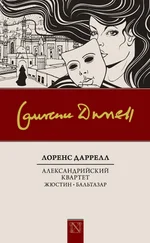Лоренс Даррелл - Prospero's Cell
Здесь есть возможность читать онлайн «Лоренс Даррелл - Prospero's Cell» весь текст электронной книги совершенно бесплатно (целиком полную версию без сокращений). В некоторых случаях можно слушать аудио, скачать через торрент в формате fb2 и присутствует краткое содержание. Жанр: Проза, на английском языке. Описание произведения, (предисловие) а так же отзывы посетителей доступны на портале библиотеки ЛибКат.
- Название:Prospero's Cell
- Автор:
- Жанр:
- Год:неизвестен
- ISBN:нет данных
- Рейтинг книги:4 / 5. Голосов: 2
-
Избранное:Добавить в избранное
- Отзывы:
-
Ваша оценка:
- 80
- 1
- 2
- 3
- 4
- 5
Prospero's Cell: краткое содержание, описание и аннотация
Предлагаем к чтению аннотацию, описание, краткое содержание или предисловие (зависит от того, что написал сам автор книги «Prospero's Cell»). Если вы не нашли необходимую информацию о книге — напишите в комментариях, мы постараемся отыскать её.
Prospero's Cell — читать онлайн бесплатно полную книгу (весь текст) целиком
Ниже представлен текст книги, разбитый по страницам. Система сохранения места последней прочитанной страницы, позволяет с удобством читать онлайн бесплатно книгу «Prospero's Cell», без необходимости каждый раз заново искать на чём Вы остановились. Поставьте закладку, и сможете в любой момент перейти на страницу, на которой закончили чтение.
Интервал:
Закладка:
The sun shines brightly and the air sparkles with the Albanian snow-caps opposite; wild duck curve and scatter outside the gulf, and sails of madder, rose, bitumen, violet, are all trimmed in the direction of the old fort whose guns belch a salute in honour of the Saint.
The procession is led by the religious novices clad in blue cassocks and carrying gilt Venetian lanterns on long poles; they are followed by banners, heavy and tasselled, and rows of candles crowned with gold and trailing streamers. These huge pieces of wax are carried in a leather baldric — slung, as it were, at the hip. After them comes the town band — or rather the two municipal bands, bellowing and blasting, with brave brass helmets of a firebrigade pattern, glittering with white plumes. Now troops in open order follow, backed by the first rows of priests in their stove pipe hats, each wearing a robe of unique colour and design — brocade of roses, maize, corn, grass-green, kingcup-yellow. It is like a flower bed moving.
At last the archbishop appears in all his pomp, and since he is the signal for the Saint to appear, all hands begin to make the sign of the cross and all lips to move in prayer.
The Saint is borne by six sailors under an old canopy of crimson and gold, supported by six silver poles and flanked by six priests. He is carried in a sort of sedan-chair, and through the screen his face appears to be more than ever remote, determined, and misanthropic. At the sight of him, however, warmth and happiness comes to every face. Radiantly happy the peasants turn from the procession to spend the long day dawdling over coffee or lemonade; or bargaining over olives and livestock to take back with them on the island boats at nightfall. His brief appearance has qualified once more the terrors and ardours of living, and reminded them that he is there, still indefatigably on the job.
For the curious, St. Spiridion's Legendary will afford details of his adventures against the forces of heaven and earth — and his triumphs against them. For the contemporary sceptic there is a little booklet (sold for three drachmae at the steps of the church) in which one may read of more recent miracles. A policeman cured of epilepsy; the evil eye averted; an old man cured of the distressing gift of tongues.
Theodora Augusta, however, is now a barely distinguishable figure in the romance of Corfiot Saints; and to a large extent her powers have been taken over by a female saint — no less than St. Corcyra herself — with which modern hagiographers will have to deal. She is infinitely less interesting than Spiridion; and devotes most of her energies to causing dreams about buried treasure.
Spiridion is a formalist in his line; it is nearly always catastrophes to the community at large that he averts; yet he does not scorn the personal petition. Sit in the darkness of his church at midday and watch his petitioners; the deep shadow of the oak pews will hide you as you watch the reverence done and the waxen dip placed in the great brass quiver in which other candles are already burning.
Prayer is a form of bargaining; you will see at once that the psychological attitude to the Saint is one of rough familiarity. The tone of voice (that is to say the internal tone of voice — for the prayer is silent though the lips move) is the tone that one would adopt to a recalcitrant child. There is no question of humble pleading, and a foregone acceptance of refusal; the petitioner, whatever his request, assumes that it is most likely to be granted, and that it is consonant with the most elementary logic. It is what one could call 'a winning style', and it demands an equally resilient psychological attitude on the part of the Saint. Often such petitions are not only not granted — but other burdens as well are suddenly placed on the head of the unlucky petitioner. Thus Karamanos, the ugly boatbuilder of Nisaki, tried to obtain a cure for his epilepsy by prolonged prayer and the offering of numerous candles. Not only did his epilepsy get worse, but he contracted meningitis also and nearly died. His wife explained this by saying that the Saint had seen through him — and detected in him a looseliver and foul-mouthed man. As he was the most moderate, faithful, just and hard-working character in the village one can only conclude that the Saint saw deeper than the rest of us — or else had confused him with his brother Basil who answered faithfully enough to this description.
At all events the Saint holds the island in his power; the boats that set out nightly for fishing or daily for foreign ports of call, all travel in his benign shadow; and it is he who welcomes you to port on the days when the deep-trenched north wind blanches the sea, and when the ironclads by the Venetian fort turn slowly on the leash to face it. It is he who guards your spirit when the wind screams down the ravines of Pantocrator. And when you are washed up in the dead calm of dawn, entangled like a sculpture in your broken boat and sprung nets — it is in his image and shadow that your soul finds rest. To him belongs the lovely greeting: 'O [Greek].
III. IONIAN PROFILES
25.7.37
The sea's curious workmanship: bottle-green glass sucked smooth and porous by the waves: vitreous shells: wood stripped and cleaned, and bark swollen with salt: a bead: sea-charcoal, brittle and sticky: fronds of bladderwart with their greasy marine skin and reptilian feel: rocks, gnawed and rubbed: sponges, heavy with tears: amber: bone: the sea.
Our life on this promontory has become like some flawless Euclidean statement. Night and sleep resolve and complete the day with their qoud erat demostrandum; and if, uneasily stirring before dawn, one stands for a moment to watch the morning star, which hangs like a drop of yellow dew in the east, it is not that sleep (which is like death in stories, beautiful) has been disrupted: it is the greater for this noiseless star, for the deep scented tree-line and the sea pensively washing and rewashing one dreams. So that, confused, you wonder at the overlapping of the edges of dream and reality, and turn to the breathing person in whose body, as in a sea-shell — echoes the systole and diastole of the waters.
Nights blue and geometric; endearing and seducing moon; the sky's curvature like an impress of an embrace while she rises — as if in one's own throat, so pure and glittering. When you have stared at her until she chills you, the human proportions of your world are reasserted suddenly. Suddenly the man crosses the orchard to the seawall. Helen walks with a lighted candle across the glass to tend the goat. Abstract from the balcony Bach begins to play — absorbed in his science of unknown relations, and only hurting us all because he implies experience he cannot state. And because paint and words are useless to fill the gap you lean forward and blow out the lamp, and sit listening, smelling the dense pure odour of the wick, and watching the silver rings play on the ceiling. And so to bed, two enviable subjects of the Wheel.
27.7.37
Yesterday we awoke to find an Aegean brigantine anchored in the bay. She wore the name of Saint Barbara and two lovely big Aegean eyes painted on her prow with the legend [Greek] ('God the Just'). The reflected eyes started up at her from the lucent waters of the lagoon. Her crew ate melons and spoke bar. barically — ounding like Cretans. But the whole Aegean was writ. ten in her lines, the great rounded poop, and her stylish rigging. She had strayed out of the world of dazzling white windmills and grey, uncultured rock; out of the bareness and dazzle of the blinding Aegean into our seventeenth-century Venetian richness. She had strayed from the world of Platonic forms into the world of Decoration.
Even her crew had a baked, dazed, sardonic look, and sought no contact with my chattering, friendly islanders. The brig put out at midday and headed northward to the Forty Saints in a crumple of red canvas. Like a weary dancer to the Forty Saints and the Albanian peaks, to mirror herself in some deserted and glassy bay like a mad butterfly. We could not bear to see her go.
Читать дальшеИнтервал:
Закладка:
Похожие книги на «Prospero's Cell»
Представляем Вашему вниманию похожие книги на «Prospero's Cell» списком для выбора. Мы отобрали схожую по названию и смыслу литературу в надежде предоставить читателям больше вариантов отыскать новые, интересные, ещё непрочитанные произведения.
Обсуждение, отзывы о книге «Prospero's Cell» и просто собственные мнения читателей. Оставьте ваши комментарии, напишите, что Вы думаете о произведении, его смысле или главных героях. Укажите что конкретно понравилось, а что нет, и почему Вы так считаете.







